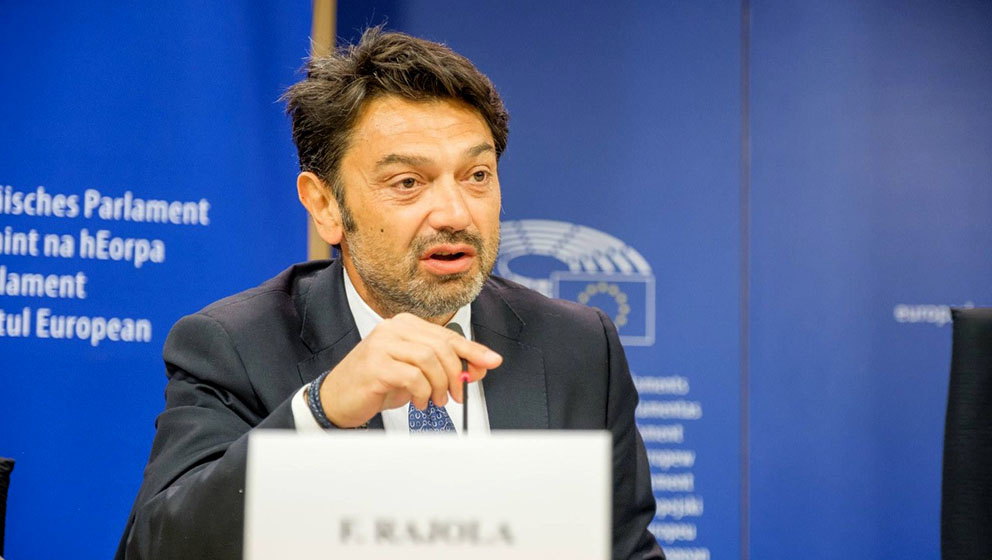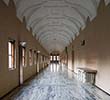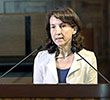Tech news. Riding the new digital wave - Federico Rajola, Director of ILAB (Center for Digital Innovation)

Federico Rajola is Rector’s Delegate for Innovation. On top of his academic roles, Prof. Rajola is CEO of CeTIF a research Centre on Technology, Innovation and Finance as well as director of ILAB, the Innovation Center of Università Cattolica.
What is ILAB?
ILAB deals with innovation of the online didactic activities of Università Cattolica del Sacro Cuore. It is a research center that also handles information technology and digitalization of the University. It supports the students and academic staff with their online activities, harnessing innovative methods and solutions of the learning tools.
How has ILAB handled the COVID-19 situation?
The Rector and the Executive Management of the University have always invested and advocated for innovation and technology in the past years. As a result, we had our bases covered with technology that could ease the online learning transition. ILAB has built a solid foundation thanks to its specialized and competent team. 20 years ago, we had already started some distance-learning courses through satellites before we adapted to the rise of the Internet and brought about Blackboard*, improving the overall learning experience to better adapt to multimedia materials and the changing demands of technology. Such case has been a determining factor as to how we would face the strong impact of COVID-19 to our academic activities and available technology.
In the past 10 days, we have assisted 4,500 professors to deliver their multimedia materials online and continue their remote teaching to more than 40,000 students. To top that, we have also trained 50 additional administrative staff to assist professors and students during the transition. If we had not had the extensive experience of 20 years, we would not be able to produce such efforts and results.
The problem does not only revolve around how we can turn over the didactic materials from in-person to remote, but it also tackles how we adapt the materials of the teaching staff to their online system requirements. There are various ways and criteria to think about how to provide and execute solutions. We start our day with a problem but end it with a result. I am grateful to have a formidable team who has taken the initiative to carry out their respective tasks and beyond. The University has also formed incredible groups who have responded to setbacks in the nick of time.
How do didactic materials change and adapt to online platforms?
There is an essence of transformation here. If a student sits in a classroom to listen to their lecturer, the student and lecturer can interact. The lecturer then can assess if it were possible to dig deeper into the topic they are discussing. It rarely happens in remote teaching.
Webinars, streams, and downloadable lesson notes are not enough. We need to revisit and rethink our approaches. After every lesson, we strongly recommend a short quiz or writing activity to check the understanding of the students on the lesson.
The professors have also been under the watchful eye of this change. Most of them are used to in-person delivery of a two- or three-hour lecture. It does not come off easily that, all of a sudden, they record the lessons that amount to 20 to 25 minutes per video.
The University ponders on how it can deliver postlesson assessment online in a way that minimizes the technical challenges on the students’ part. The teaching staff expands their ways in giving exams and assignments that fit best online since, at present, paperbased tests are no longer feasible. Aside from that, they must be prepared to answer the questions of the students, even regarding the technical problems on the system.
We also pay attention to the needs of our students with disabilities and think of solutions that are specialized and catered to their specific needs. That plus a look into the cases of digital divide where a student living in the countryside might not have the best internet connection to access the uploaded materials.
What are the most challenging experiences ILAB faced during COVID-19?
From the onset of the virus, we have implemented a few strategic plans. We first started working on the worst-case scenario which was the University being closed until the summer. From there, we have built a pile of strategies. One of the challenges we have encountered is the massive delay in the delivery of technological materials. Overnight, every activity shifted to remote and we had to provide some of the staff, both academic and administrative, with additional hardware solutions. Since the production in China has been halted, the orders we made faced the same issue. We put on our thinking caps and managed to provide an alternative source without allowing the quality of the content to suffer.
How can the COVID-19 incident become an opportunity for the University?
For the long-term, it can have the upsides. This is the time the University revamps its models in teaching, materials, and technology. We have an abundant supply of technology on our side and, for now, it is enough to provide our students.
What we learn from this experience takes us further in an important phase.
Technology provides us with tools that complement what we use inside the classroom, on the internet, and, most especially, on social media platforms. We will witness an even more connected world and the previous generations will necessarily converge around Gen Z.
The University has taken the challenge to improve its mode of delivery, contents, and even research online until beyond this period. We are aware of the bandwidth issues that many are experiencing nowadays. Everyone is at home and uses the Internet. We want to ensure that the bandwidth will not affect the quality of the online materials.
One of the projects we are implementing is to equip all classrooms on campus with state of the art cameras and audio-equipment to allow live streaming of the lecture for the students who want to catch up online. We believe it bridges the generational gaps in terms of technological advancement.
In the end, I would like to thank every member of the staff who has been with us throughout this tough period: The Rector, the administrative directors, and every department of the University. We would not be able to do any of this without their help. They have displayed a sense of bond and teamwork that I have never seen before. Each one of them has worked more than what they were tasked to, putting the needs of others before theirs. And that, I believe, is a learning experience to keep and remember.
* Blackboard is the largest education technology and services company in the world serving nearly 100 million users.
Article featured on Worldbound, edition n.4-2020.


 And the world stood still
And the world stood still Community engagement. Apart but not alone
Community engagement. Apart but not alone Faculty. Standing together for Science - Professor Roberto Cauda
Faculty. Standing together for Science - Professor Roberto Cauda Tech news. Riding the new digital wave - Giuliano Pozza (Chief Information Officer at Cattolica)
Tech news. Riding the new digital wave - Giuliano Pozza (Chief Information Officer at Cattolica) Meet the experts. Higher Education Internationalizations VS COVID-19 - Léa Senn, Università Cattolica del Sacro Cuore
Meet the experts. Higher Education Internationalizations VS COVID-19 - Léa Senn, Università Cattolica del Sacro Cuore Meet the experts. Higher Education Internationalizations VS COVID-19 - Gianluca Samsa, Università Cattolica del Sacro Cuore
Meet the experts. Higher Education Internationalizations VS COVID-19 - Gianluca Samsa, Università Cattolica del Sacro Cuore Meet the experts. Higher Ed Internationalizations VS COVID-19 - Gary Rhodes, California State University at Dominguez Hills
Meet the experts. Higher Ed Internationalizations VS COVID-19 - Gary Rhodes, California State University at Dominguez Hills Student mobility in the time of COVID-19. Corrado Cavalli, exchange student at Hanyang University (Seoul, South Korea)
Student mobility in the time of COVID-19. Corrado Cavalli, exchange student at Hanyang University (Seoul, South Korea) Student mobility in the time of COVID-19. Andrea Riccio, Exchange student at Groupe ESSCA Shanghai (Shanghai, China)
Student mobility in the time of COVID-19. Andrea Riccio, Exchange student at Groupe ESSCA Shanghai (Shanghai, China) International students. Student voices from the lockdown
International students. Student voices from the lockdown Looking forward. A conversation with Professor Antonella Sciarrone Alibrandi
Looking forward. A conversation with Professor Antonella Sciarrone Alibrandi